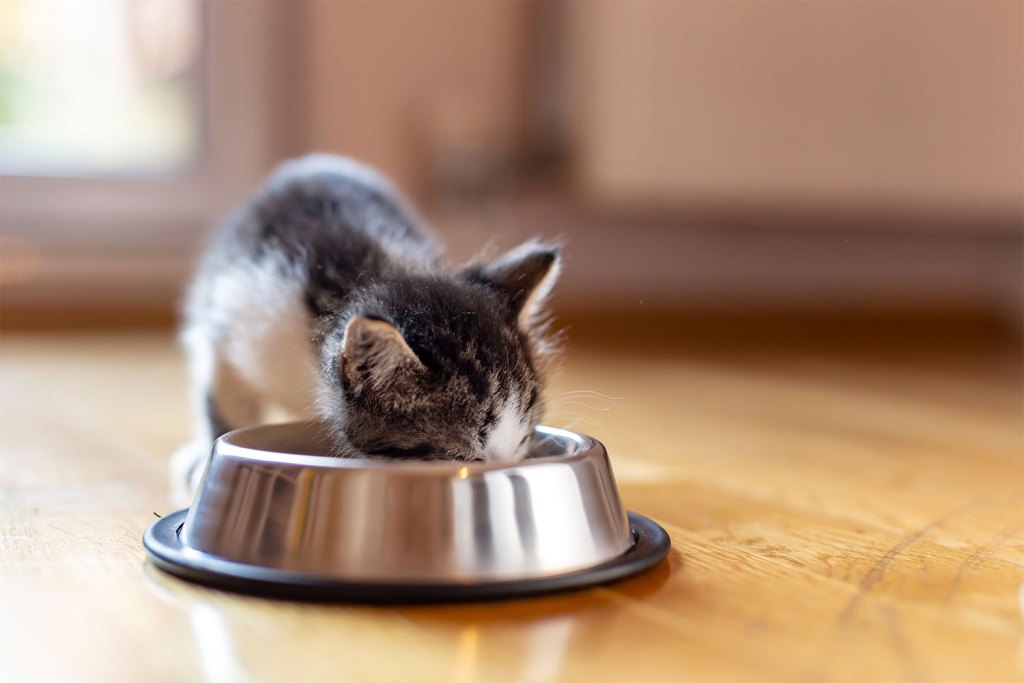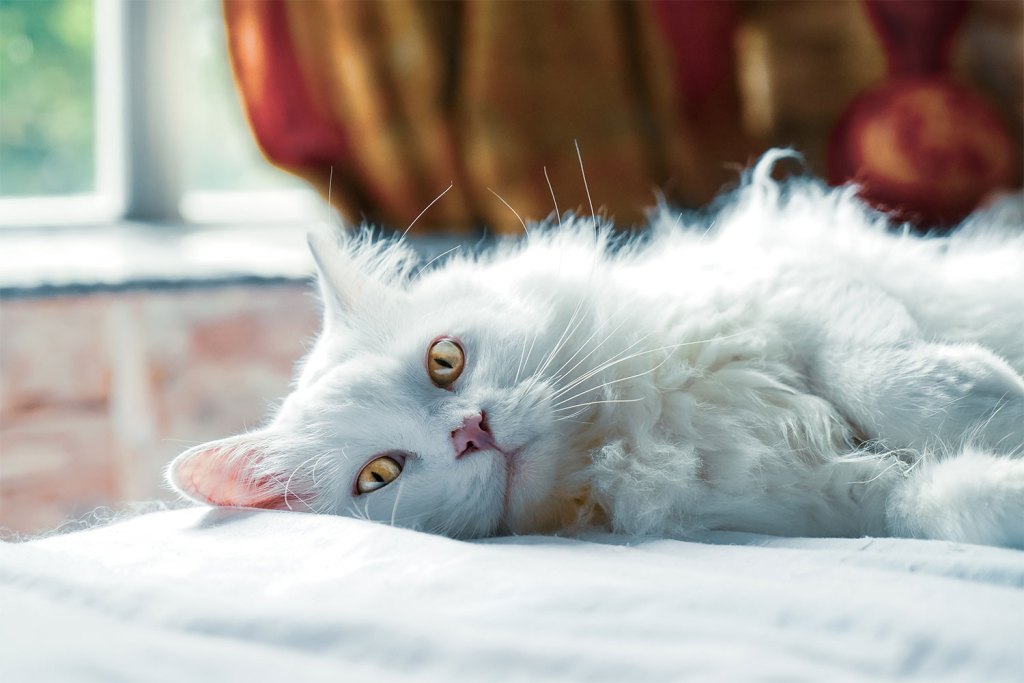You’ve noticed a change in your cat’s eating habits, so it’s time to investigate. This one change can signal a far deeper issue than just about any other change in behavior. But is it always cause for worry? The answer is a little more complicated than a simple yes or no.
Cat behavior may seem complex, but not eating is not something you should ignore. Your cat may dislike the food you’ve chosen or may be getting more food than it needs on a daily basis. If you’ve ruled out these simple causes, it’s time to take a deeper look.
Digestive issues
A cat that is eating less than normal may be having trouble with digestion. Lack of eating will be accompanied by vomiting or diarrhea as your cat’s body tries to regain equilibrium. Even if your cat doesn’t immediately have these symptoms, the problem could still be related to digestion.

Possible causes could be acid reflux, parasites, or irritable bowel disease. Your cat may have developed tumors in the digestive tract. It could also be an imbalance in the gut flora. Only a thorough examination from your vet will uncover the true cause.
Respiratory issues
If your cat is having trouble breathing or smelling, food may not be as appealing. Consider how excited you are to eat during a terrible cold. Your cat feels the same way.
Respiratory issues can be accompanied by sneezing, swollen lips, scratching the face, and watery eyes. A simple course of antibiotics may help clear up any respiratory infections, while allergy treatments can relieve those pesky allergy symptoms.
Dental issues
If your cat experiences pain every time it chews food, it may not be excited about mealtimes. If you’ve got a senior cat, dental disease and tooth issues are prevalent causes for changes in eating habits.
Even younger cats can develop dental issues due to injuries or poor early nutrition (as is sometimes the case with rescue cats). Have your vet examine your cat and come up with a plan for making it easier to eat food. Switching to a wet food could be in order.
Eating something that isn’t food
Sometimes animals accidentally ingest part of a toy or eat something that smells like food but can’t digest it properly. If the digestive tract can’t pass the foreign body, it causes a bowel obstruction.
Animals will naturally stop eating to try to alleviate the pressure and pain of the obstruction. This can be a very serious issue, and it’s crucial to catch it as soon as it comes up. The obstruction will likely require surgery, but your veterinarian will be able to advise you on the best steps forward.
Food preferences
Cats may have food preferences that affect their ability to eat. Instead of chalking it up to “finicky cat behavior,” take a deeper look to see what could be bothering your cat.
If your cat refuses to eat a specific type of meat, that could mean that your cat has a mild allergy or has trouble digesting it. Your cat would rather not eat than go through the discomfort. Switching to a different ingredient could alleviate those symptoms.

If your cat doesn’t like the texture or shape, that could also be meaningful. Are the bites too big for your senior or juvenile cat? Is the food too hard to chew? Change the form of food to see if your cat’s eating improves. Look into tips for jumpstarting your cat’s appetite.
Vaccinations
If you just recently took your cat in for vaccinations and notice a change in eating habits, your cat may be having a reaction. Some reactions are mild, and cats will stop eating temporarily until their body regains equilibrium.
Keep a close eye on your pet to ensure that eating habits return to normal soon after the vaccinations. If they don’t, take your cat back to the vet for a checkup.
New surroundings
Cats sometimes refuse to eat if they feel anxious about their surroundings. If you’ve moved recently or just brought a new cat into your home, it may take a few days for your cat to adjust and eat.
It may also be a sign that your cat is uncomfortable with where its food bowl is located. If you’ve changed it drastically, you might put the bowl back in the original location to see if eating habits improve. You may also decide to invest in a covered space for your cat to eat in private.
Keeping an eye on your cat’s eating habits
From the first moment you say “my cat isn’t eating,” the clock starts ticking. Take stock of your cat’s other behaviors and look around to see if any recent changes may be troubling your cat. This change in behavior is not something to ignore.
Your veterinarian is a valuable source of information for you about your cat’s behavior, and it’s essential to have a solid relationship to help keep your cat in top shape. Not eating could be the first sign of a serious issue, so jump on the chance to catch it early. It’s always better to be safe than sorry when it comes to your cat’s eating habits.


